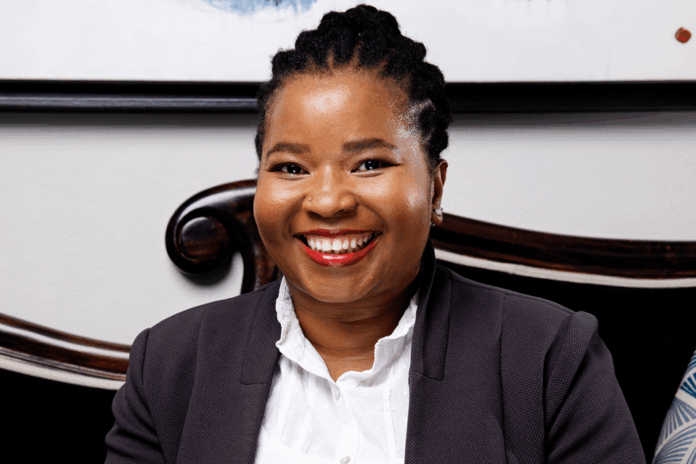Congratulations on your appointment as chairperson of the FPI Board. What does becoming chairperson mean to you personally and professionally?
Thank you very much. Becoming chairperson of the FPI Board is both an honour and a responsibility that I do not take lightly. Personally, it is deeply humbling to be entrusted with this role by my peers and colleagues in the profession I have dedicated my career to. It represents the culmination of years of commitment to advancing financial planning, but also a renewed sense of duty to serve with integrity and vision.
Professionally, it means I now carry a greater responsibility to ensure that the FPI continues to lead with purpose, setting the highest standards, protecting the interests of clients and equipping financial planners with the tools they need to thrive in an ever-changing environment. For me, this role is not about a title, but about being a custodian of trust for both our members and the South African public.
What is your long-term vision and objective for the FPI, and how do you plan to achieve these outcomes?
My long-term vision for the FPI is to position it as a globally recognised professional body that sets the gold standard in financial planning, while remaining deeply rooted in the realities of South Africa. I want the FPI to be known not only for excellence and ethics, but also for its impact on society and ensuring that financial planning is accessible, inclusive and transformative. achieve this, I believe in three key priorities:
Strengthening professionalism. Continuing to raise the bar on issues such as ethical conduct, qualifications and continuous professional development.
Driving diversity and inclusion. Building a profession that truly reflects the demographics of South Africa and empowers young talent from all backgrounds.
Expanding financial literacy. Partnering with all stakeholders to make financial education a national priority.
This vision will be realised through collaboration, innovation and consistent accountability. By working closely with our members, stakeholders and international partners, I believe we can grow both the profession and its contribution to the country.
How will you ensure effective governance and accountability within the board?
Governance and accountability are the backbone of any credible professional body. My approach is to build a culture of transparency, robust oversight and collective accountability. This means timely decision-making and embedding ethical leadership at every level of the board’s work. Practically, I will ensure that board discussions are rooted in insights, and that performance against strategic priorities is regularly reviewed. I also believe in leading by example: holding myself to the same standards of accountability that I expect of my fellow board members.
What does financial planning mean to you?
To me, financial planning is about more than just budgets and bank accounts. It’s about creating the possibility of a better life. It is about taking control of your future, especially when you come from a background where financial stability wasn’t guaranteed.
Financial planning is a tool to break cycles of poverty. It’s how families who’ve always struggled can begin to build generational wealth, even if it starts small. It’s how someone can move from just getting by to building something lasting and something they can pass on. For many, including myself, it’s deeply personal. It’s about changing the narrative, not just for ourselves but for the people who come after us.
Additionally, financial planning has the possibility of bringing dignity to people. It allows people to dream bigger, to feel proud of what they’re building and to live with a sense of security and self-respect.
In 2023, you won the FPI Diversity and Inclusion Award. Please outline how you have fostered diversity within the financial planning profession.
That recognition in 2023 was not mine alone. It reflected a collective effort between multiple parties to make financial planning more inclusive and representative of South Africa. I have worked to break down barriers to entry for underrepresented groups, champion mentorship programmes for young professionals from diverse backgrounds and create platforms where all voices can be heard.
For me, fostering diversity is not a tick-box exercise. It’s about building a profession that mirrors the society we serve; one where people of all races, genders, languages and socioeconomic backgrounds feel they belong and can make a meaningful impact.
As the FPI, we have a responsibility to not only serve our members but to champion financial education.
Please outline the work you did as chairperson of the Diversity and Inclusion Sub-Committee and the Human Capital Committee at the FPI.
As chair of the Diversity and Inclusion Sub-Committee, I focused on overseeing the embedding of inclusivity into the DNA of the FPI. This included the launch of the FPI Education and Training Fund Trust which was established to assist those from the previously disadvantaged groups to be given the opportunity to further their studies.
In leading the Human Capital Committee, my focus was on both people and culture ensuring that the FPI not only attracts and retains top talent, but also nurtures an environment where staff feel empowered, valued and aligned with our mission. Together, these committees worked hand in hand to advance the FPI’s vision of being a profession that truly reflects South Africa’s rich diversity.
Please discuss the importance of financial literacy and inclusion in South Africa.
Financial literacy and inclusion are critical for South Africa’s future. We live in a country marked by stark inequality, where too many people remain excluded from the formal financial system. Without financial literacy, even those with access cannot fully participate or benefit.
Empowering South Africans with financial knowledge is about dignity, security and opportunity. When individuals understand how to budget, save, invest and plan for their futures, they are better able to break cycles of poverty and build intergenerational wealth. As the FPI, we have a responsibility to not only serve our members but to champion financial education as a cornerstone of national development.
What do you hope internal and external stakeholders will say is different about the FPI one year from now because of your leadership?
A year from now, I hope stakeholders will say that the FPI has become more inclusive, more agile and more impactful. Internally, I want our members to feel that their voices are heard, that their profession is being advanced and that they are better supported in delivering value to clients. Externally, I want the public and policymakers to see the FPI as a trusted partner in promoting financial planning, financial literacy, ethical practice and consumer protection.
Ultimately, I hope people will say that under my leadership, the FPI did not just maintain standards, but raised them, leaving the profession stronger, more diverse and more relevant to the challenges and opportunities of our time.












